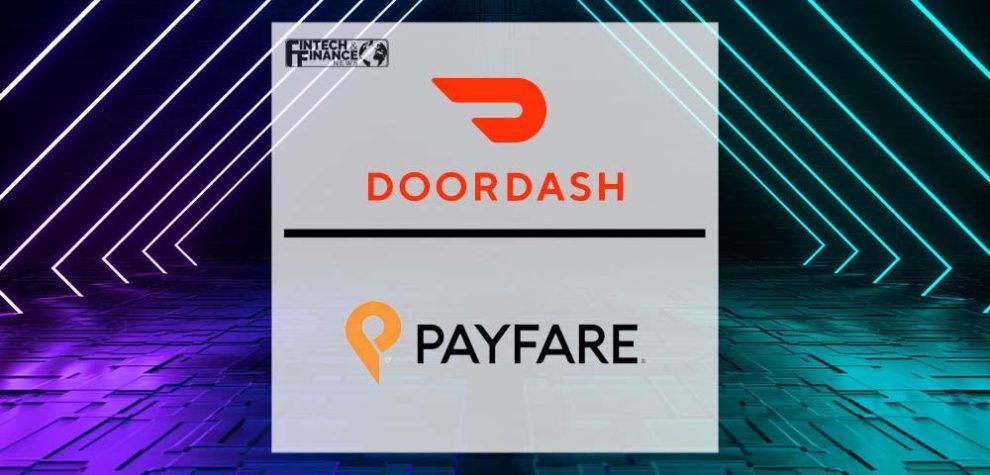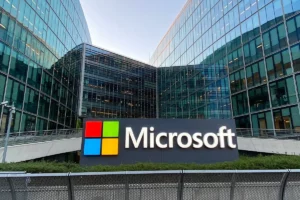Payfare announced yesterday that it’s withdrawing its 2024 financial projections following the news that its partnership with DoorDash will not be renewed. This development marks a significant shift in the landscape of financial services for gig economy workers, leaving many to wonder about the future of instant pay options for delivery drivers.
On a crisp September morning in Toronto, where Payfare is headquartered, the atmosphere was tense as employees and industry watchers digested the news. The company revealed that its core services agreement with DoorDash, which underpins the popular DasherDirect card program, will conclude in early 2025.
Marco Margiotta, CEO of Payfare, spoke to reporters outside the company’s offices. “While this is certainly a challenge, we view it as an opportunity to diversify and strengthen our portfolio,” he stated. “The DasherDirect program has been instrumental in our growth, and we’re proud of the value we’ve provided to millions of Dashers.”

As news of the partnership’s end spread, many DoorDash drivers expressed concern about the future of their financial services. Sarah Chen, a full-time Dasher in San Francisco, shared her thoughts: “The DasherDirect card has been a lifeline for me. Being able to access my earnings instantly has made a huge difference in managing my finances. I hope whatever comes next is just as good, if not better.”
DoorDash was quick to reassure its workforce. A company spokesperson stated, “As we transition out of our relationship with Payfare to a new vendor, Dashers will continue to have access to DasherDirect for the months to come. Dashers who are enrolled will continue to enjoy cash back rewards and instant-no-fee direct deposit after every dash.”
The dissolution of this partnership poses significant challenges for Payfare. The company acknowledged that the DasherDirect program has been its largest, contributing substantially to overall revenues. As a result, Payfare has withdrawn its previously issued financial guidance for 2024, a move that underscores the impact of this development.
However, it’s not all doom and gloom for the EWA provider. Payfare reported a strong cash position, with over $100 million in cash, cash equivalents, and guaranteed investment certificates. This financial cushion provides the company with resources to pursue new strategic initiatives.
Industry analyst Jennifer Kwan of TechFinance Partners offered her perspective: “While the loss of the DoorDash contract is significant, Payfare’s strong balance sheet gives them runway to pivot and explore new opportunities in both the gig economy and traditional employment sectors.”

This development comes at a time of rapid evolution in the EWA space. Just last month, Payfare and Lyft announced a collaboration to power a new earned wage access feature for the Lyft Direct debit card and banking app. Similarly, in March, Uber expanded its Pro Card — developed in partnership with Mastercard and Payfare — to Canadian drivers and delivery workers.
Dr. Eliza Thornberry, a professor of Labor Economics at UCLA, explained the broader context: “The gig economy has fundamentally changed how millions of workers receive their pay. EWA services have become a crucial part of this ecosystem, offering financial flexibility that traditional employment often lacks.”
While DoorDash has remained tight-lipped about its future plans, industry insiders speculate about potential new partnerships. The company has promised to share news of other financial services solutions soon, hinting at a continued commitment to providing financial tools for its Dashers.
“Our partnership with Payfare has helped empower millions of Dashers on their journey toward reaching their goals,” the DoorDash spokesperson added. “We’re excited to continue providing cutting-edge financial services solutions to Dashers, and look forward to sharing more soon.”
Despite the setback, Payfare remains optimistic about its future. The company stated that it’s working on securing new, large-scale EWA programs in both the gig economy and employee verticals. It believes these opportunities could potentially offset the impact of losing the DoorDash agreement.
In a move that seems unrelated but adds to the day’s developments, Payfare also announced a change in its board of directors. Hugo Chan resigned as a director, citing personal reasons following his relocation to Asia.
As the sun sets on this turbulent day in the world of fintech and gig economy services, it’s clear that the earned wage access landscape is in flux. The end of the Payfare-DoorDash partnership signals not just a challenge for these companies, but a potential reshuffling of the entire industry.
Gig workers, who have come to rely on instant access to their earnings, will be watching closely to see how companies adapt. Will new players enter the market? How will established firms like Payfare evolve their offerings? And what innovations might DoorDash introduce with its new financial services partner?
One thing is certain: the demand for flexible, worker-friendly financial solutions in the gig economy isn’t going away. As companies jockey for position in this lucrative market, the real winners will be those who can offer the most value to workers while building sustainable business models.
As night falls and the offices of Payfare and DoorDash empty out, the work is just beginning. Teams of strategists, developers, and financial experts will be burning the midnight oil, all striving to shape the future of how gig workers get paid. In this rapidly evolving landscape, today’s news is just the latest chapter in an ongoing story of innovation and adaptation in the world of work and finance.
















Add Comment